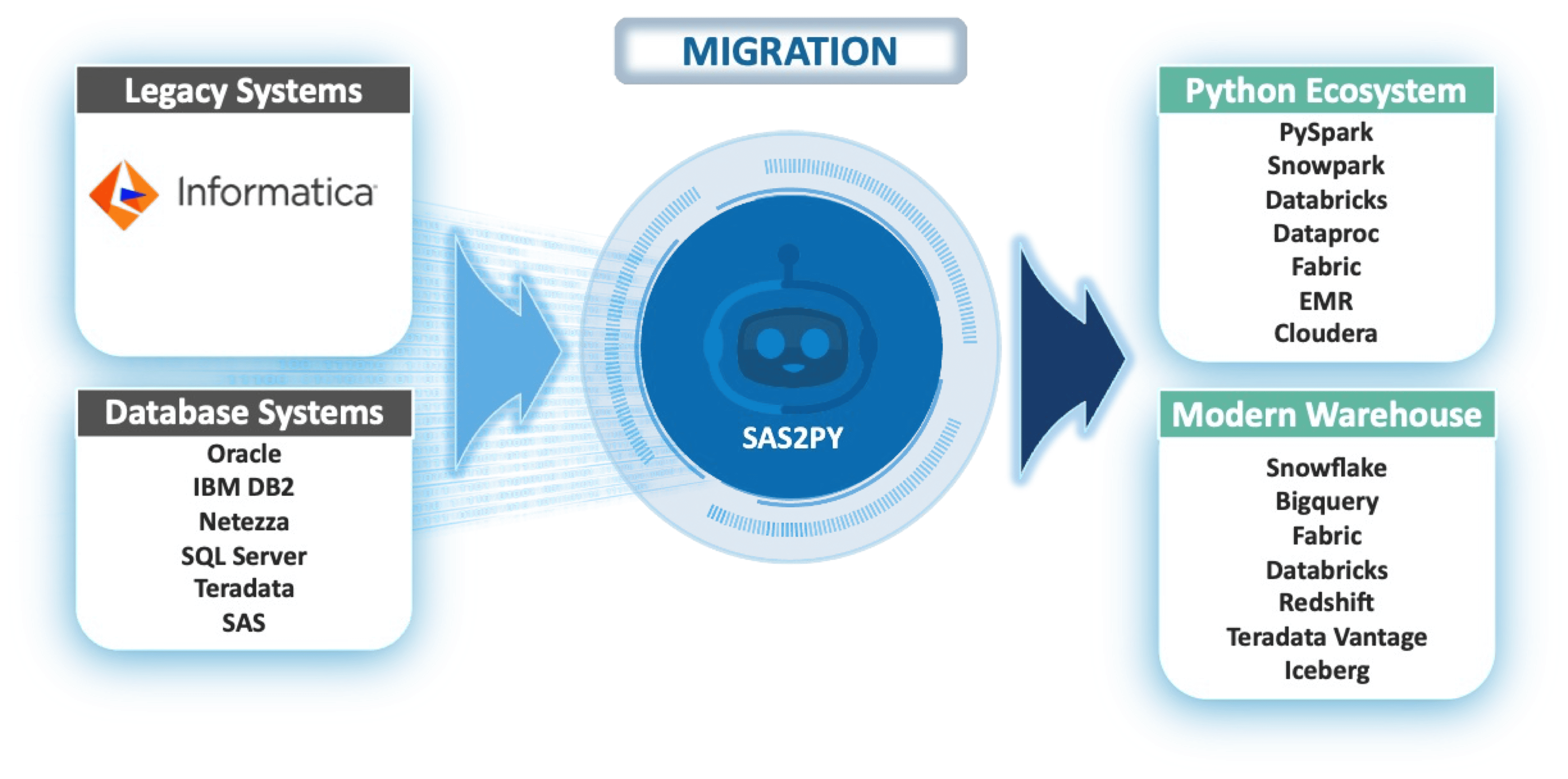Modernize Informatica Migrate - Faster, Smarter. 🚀
Datasheet



SAS2PY automates the end-to-end migration of legacy Informatica workflows— converting mappings, transformations, sessions, and workflow logic into scalable, cloud-native architectures optimized for performance, flexibility, and long-term sustainability.
SAS2PY preserves business logic and metadata, accelerates migration timelines, and provides full visibility from original Informatica workflows to optimized modern outputs—enabling a seamless, secure, and verifiable modernization of your enterprise data infrastructure.

SAS2PY ensures your Informatica migration is not only fast—but also functionally accurate, fully auditable, and production-ready at enterprise scale.
SAS2PY automates the conversion of legacy Informatica mappings, workflows, sessions, and transformation logic into Python, SQL, and modern cloud-native pipelines. It replaces months of manual re-engineering with a parser-driven, auditable process.
You can migrate up to 100,000 lines of Informatica logic in under 10 minutes, reducing migration timelines by up to 90% compared to manual refactoring.
Absolutely. SAS2PY scales across millions of lines of Informatica logic—including nested mappings, reusable transformations, parameterized sessions, and complex workflows—while preserving all dependencies.
We use row-by-row and aggregate-level validation, including schema mapping and output comparisons, to ensure 100% accuracy between your original Informatica logic and the converted results.
Yes. By transitioning from Informatica to open-source and cloud-native platforms, organizations typically save 50–75% on software licensing, infrastructure, and support costs.
SAS2PY performs schema matching, metadata comparison, column-level validations, and full regression tests to ensure that Informatica transformations are fully reproduced in the modern environment.